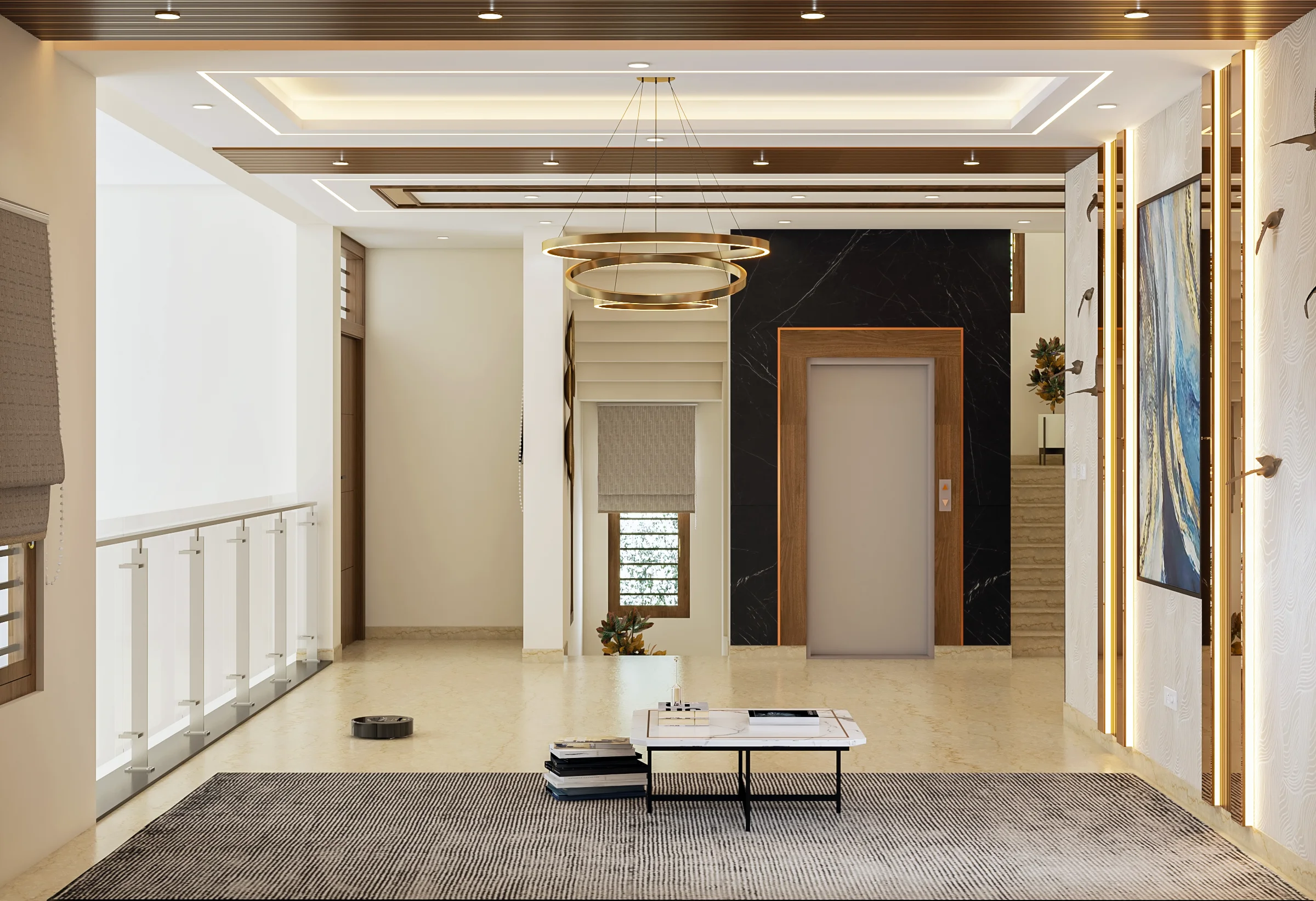When designing basement spaces, flooring plays a critical role in determining both the functionality and aesthetic appeal of the area. Basements often present unique challenges, such as moisture, limited natural light, and temperature variations, so choosing the right flooring is essential. At Wedezine, we believe in crafting spaces that combine style and practicality. Here are the best flooring options for your basement that address these challenges while enhancing the overall design.
1. Vinyl Flooring
Vinyl is one of the most popular choices for basements, and for good reason. It is highly water-resistant, affordable, and comes in a wide range of designs that can mimic wood, stone, or ceramic tiles. Luxury vinyl planks (LVP) and tiles (LVT) are particularly durable and easy to maintain, making them a top choice for high-traffic basement areas such as game rooms or home gyms.
Pros:
- Waterproof and moisture-resistant
- Easy to install and maintain
- Wide variety of styles and finishes
Cons:
- Can feel cold underfoot without underlayment
- Less environmentally friendly compared to other options
2. Engineered Wood Flooring
If you love the warmth and elegance of wood but are concerned about the basement’s moisture levels, engineered wood flooring is a fantastic compromise. Unlike traditional hardwood, engineered wood features a plywood core that provides better resistance to humidity and temperature changes.
Pros:
- Offers the look and feel of real wood
- More moisture-resistant than solid hardwood
- Can be refinished once or twice
Cons:
- Not fully waterproof
- Higher cost compared to vinyl or laminate
3. Laminate Flooring
Laminate flooring is another budget-friendly option that can replicate the appearance of wood or stone. Modern laminates often come with water-resistant coatings, making them a viable choice for basement spaces that have minimal moisture concerns. However, it’s essential to use a vapor barrier during installation to protect against potential water damage.
Pros:
- Cost-effective and versatile
- Easy to clean and maintain
- Scratch-resistant
Cons:
- Susceptible to water damage without proper precautions
- Can feel hollow or less premium underfoot
4. Ceramic or Porcelain Tiles
For basements that are prone to high moisture or even occasional flooding, ceramic and porcelain tiles are the most durable and water-resistant options. Available in a variety of designs, from classic to contemporary, tiles can enhance the visual appeal of your basement. They’re especially ideal for areas like laundry rooms or wet bars.
Pros:
- Completely waterproof
- Long-lasting and durable
- Available in diverse styles and patterns
Cons:
- Can be cold and hard underfoot
- Requires professional installation for best results
5. Carpet Tiles
If you’re looking to create a cozy and comfortable basement, carpet tiles are an excellent option. They’re easier to install and replace than traditional wall-to-wall carpeting and can add warmth to spaces like family rooms or play areas. Choose moisture-resistant carpet tiles with synthetic fibers to avoid issues with dampness.
Pros:
- Soft and comfortable
- Easy to install and replace damaged sections
- Provides insulation and reduces noise
Cons:
- Not ideal for damp basements
- Requires regular cleaning to prevent mold or mildew
6. Polished Concrete
For a sleek and modern look, polished concrete is gaining popularity in basement designs. This flooring option is extremely durable, low maintenance, and resistant to moisture. It can also be customized with stains or epoxy coatings to create a unique aesthetic.
Pros:
- Highly durable and moisture-resistant
- Cost-effective for large spaces
- Customizable finishes
Cons:
- Hard and cold underfoot
- Can develop cracks over time
Factors to Consider When Choosing Basement Flooring
Before selecting the ideal flooring for your basement, keep these factors in mind:
- Moisture Levels: Assess whether your basement is prone to dampness or flooding and choose water-resistant options accordingly.
- Purpose of the Space: The intended use of your basement will influence your flooring choice. For example, a home theater may benefit from carpet tiles, while a laundry room might require ceramic tiles.
- Insulation Needs: Flooring options like carpet or vinyl with underlayment can add insulation and make the space more comfortable.
- Budget: While some materials like engineered wood or tiles may be more expensive upfront, they often provide better durability and long-term value.
At Wedezine, we understand that every basement is unique. Our team of expert designers can help you choose the flooring solution that best suits your style, budget, and functional needs. Contact us today to transform your basement into a beautiful and functional living space!


